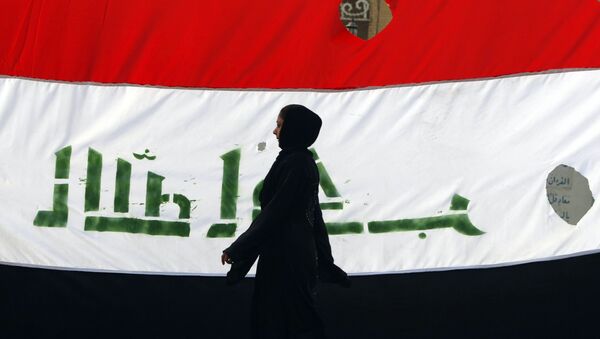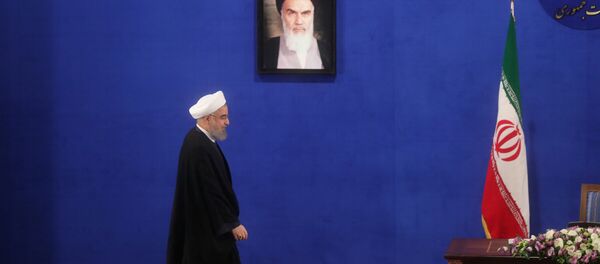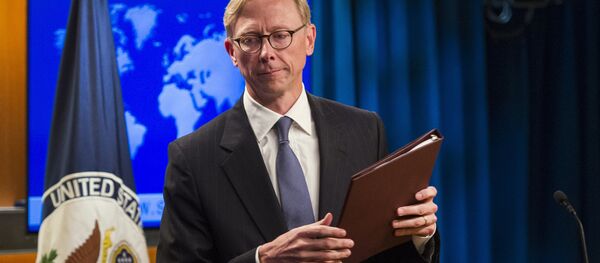Baghdad has found itself between the devil and the deep blue sea, as Donald Trump's first round of anti-Iranian sanctions came into force on August 7.
"As a matter of principle we are against sanctions in the region. Blockade and sanctions destroy societies and do not weaken regimes," Iraqi Prime Minister Haider al-Abadi stated on August 7. "We consider them [sanctions on Iran] a strategic mistake and incorrect but we will abide by them to protect the interests of our people. We will not interact with them or support them but we will abide by them."
However, on August 13, al-Abadi somewhat backpedaled on his commitment: "I did not say we abide by the sanctions, I said we abide by not using dollars in transactions. We have no choice," he noted.
A senior Iraqi diplomat working in Washington told Sputnik that "the US understands the complexity of Iraq's relations with Iran," but "continue to exert pressure." According to him, Baghdad is in a situation when it needs to maintain good relations with both the US and Iran.
The first round of sanctions imposed on Tehran on August 7, envisages placing restrictions on Iran's automotive sector, the rial and on the country's trade in gold and precious metals. The second batch of sanctions that is expected to take effect on November 5 will target Iran's energy sector, including petroleum-related transactions, as well as transactions by foreign financial institutions with the Central Bank of Iran.
The US is resuming its sanctions regime against the Islamic Republic after Donald Trump's withdrawal from the Joint Comprehensive Plan of Action (JCPOA), commonly known as the Iran nuclear deal, in May 2018.
Bound Together by Politics and Trade
Washington's unilateral move has already backfired on Iraqis. Following Washington's pullout from the nuclear deal the Iranian national currency has plummeted by almost 50 percent, inflicting pain on Iraqi investors. According to The Washington Post, during the 2015 Daesh (ISIS/ISIL)* onslaught the people of Iraq poured millions of dollars into Iranian banks seeking a safe haven for their life-savings.
Meanwhile, Iran, who shares a 1,500-kilometer border with Iraq, remains Baghdad's second-largest trading partner after Turkey. The Islamic republic supplies its neighbor with almost everything from milk to cement and bricks: "Walk into almost any market in Iraq and the shelves are filled with goods from Iran — milk, yogurt, chicken," The New York Times wrote in July 2017. Moreover, Iraq is dependent on Iranian natural gas to operate its electric power stations.
Under these circumstances, "Iraq has no choice but to violate sanctions," Politico presumed, adding that it could "drive the country further into Iran's sphere of influence," — exactly what the Trump administration is fighting against.
Al-Monitor echoes this stance, saying that "Iran has enough influence to replace Abadi with other candidates" in case he follows the US suit. The online newspaper noted that the Iraqi prime minister had recently come under heavy criticism from the pro-Iranian Fatah Alliance, the second biggest winner in the May parliamentary elections after Muqtada al-Sadr's Sairun, and even his own Islamic Dawa Party. In addition, the representative of the Kurdistan Regional Government (KRG) in Iran, Nazem Dabbagh, has signaled Erbil's support for Iran and slammed Abadi for obeying Washington.
*Daesh (ISIS/ISIL/Islamic State), is a terrorist group banned in Russia.







